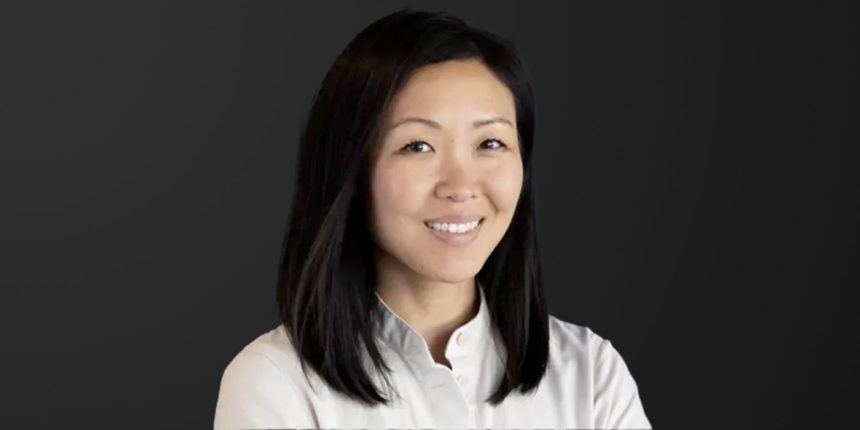Interview with Supercritical CEO – Michelle You

Michelle You is the CEO and co-founder of Supercritical, previously the founder of SongKick and a Venture Partner at LocalGlobe. A connected member of the Zinc community, Michelle has worked in the entrepreneurial space for a number of years. We spoke to Michelle about her journey and the lessons she’s picked up along the way as inspiration for the next wave of entrepreneurs looking to build a better future for our planet. If you’re interested in taking the next step in your journey to solve the environmental crisis, read on below and take a look at Zinc’s next Venture Builder to transform the industries with the most impact on our environmental crisis today and apply.
Thanks Michelle for taking the time to share more about your journey to build Supercritical. Let’s start with the first question – what change are you trying to make in the world with Supercritical?
Supercritical is a software platform that helps businesses get to net zero. We help companies measure their carbon emissions, help them with their net zero pathway planning and advise on actionable emissions reduction measures, and sell them high quality carbon removal offsets, the only type of offset that counts towards net zero.
Supercritical’s mission is to scale carbon removal. Carbon removal are early stage technologies that literally remove carbon from the atmosphere. The best known example is probably direct air capture, which is a stack of fans that absorb carbon dioxide from the sky and bury it underground in the rock.
The IPCC (UN body of scientists) have modelled that in order to stay below 1.5C of warming as a planet, we will need to remove 10 billion tonnes of carbon annually by 2050. We’ve only removed a few thousand tonnes to date. This is an urgent scaling challenge that we need to meet as a species in order to stay alive.
In order to get to net zero emissions by 2050, which is the requirement modelled by the IPCC, we must remove billions of tonnes of carbon to ‘net’ out the remaining emissions. This is a missing piece of the climate story. Even if we decarbonize everything, move to electric vehicles and decarbonize cement and steel, we will still need to scale carbon removal to stay below 1.5C of warming.
What was your motivation to work in this space (ClimateTech, Impact) and where did it come from?
My son was born in 2018. One month after he was born, the landmark IPCC report came out that clearly stated that we had to get to net zero global emissions by 2050 in order to stay below 1.5C of warming. With a newborn baby, that timeline of ~3 decades became very real to me. He would only be in his 30s when 2050 hit and the reality of the climate crisis became very tangible.
I went through a period of real climate depression, feeling really hopeless. Starting Supercritical is my small contribution to making sure I’m leaving him with a habitable planet.

image by zoe schaeffer from unsplash
You made a big shift from starting a D2C successful tech company, a brand, and then working with and supporting other founders and investors in the product development of D2C products. Moving into the B2B space must have been a big change. Why did you choose to go into B2B?
I decided to focus on B2B because I felt I would have a bigger impact. The average UK citizen emits about 12.5 tonnes of CO2, I would have to work with millions to get to scale carbon removal to a meaningful level. Businesses as entities emit orders of magnitude more CO2 than the average consumer.
But more than that I strongly believe businesses have more responsibility to act and conduct business in a responsible way than individual consumers do. It’s not an individual consumer’s responsibility to stop flying, stop eating meat, stop driving. They’ve been left with the choices by a broken system that hasn’t costed in the externalities of climate change.
What has been your greatest challenge so far?
Definitely learning how to build a B2B business and mastering go-to-market strategies.
Your previous ventures have always been with co-founders, how do you know if someone is a good co-founder for you?
My cofounder Aaron was the ex CTO at Songkick, so we knew each other for many years before starting the company together. We went through a very deliberate process of getting to know each other as founders before agreeing to start Supercritical together. We went through First Round Capital’s founder dating questionnaire, but more than that we really took the time to get to know each other, build trust, and ask really tough questions about values, desired outcomes from the business, our personal financial situations, etc. It’s such a special and unique relationship that can really make or break your business, you can’t force it.
What’s next for Supercritical and for you?
Scaling carbon removal and being responsible for 500m tonnes of carbon removed!
How can people get involved or help?
Well, we are currently hiring! Otherwise, what you can do is ask your company what it’s doing about climate change and make it clear to your employer that you care about this. The tech sector emits more than aviation, so even though our products are digital, we still have massive climate impact.
Get support and funding to build a solution to tackle the environmental crisis with ZincCan you tell us about the last new thing you read, listened to, or tried?
The last new thing I read was Crying in H Mart, a beautiful memoir.
Join the Zinc community
Stay up to date with all Zinc updates and future posts as part of our fast growing community.
Featured Resources
Impact Report 2023
We started Zinc with the hypothesis that missions are an effective way to attract highly ambitious, talented and experienced groups of innovators, who might not recognise themselves as “classic entrepreneurs” but are ready and able to start a new commercial and successful venture to tackle some of our most pressing societal issues.
The world has overcome the sorts of challenges we face today when it has adopted a mission-based approach to the biggest problems and brought together world-class talent to invent and innovate, e.g: NASA and landing a man on the moon, the LSE blueprinting the British welfare state, or the Gates Foundation aiming to eradicate diseases.
On this basis and assumption, we designed Zinc as a new mission-based Venture Builder — a place where global talent, ‘impact makers’, can join to experiment and develop new solutions to our most pressing societal issues.
To Eliminate Environmental Threats to Our Health
Environmental health threats pose a grave danger to human health and well-being, causing suffering to individuals and communities worldwide. These threats, which include chemical pollution, climate change, and biological hazards, cause acute and chronic diseases and exacerbate existing health conditions.
To protect those we care about, we must tackle the causes of environmental degradation, shield people from the consequences of environmental harm, and, where protection fails, we must mitigate the health impacts they suffer.
This demands action to improve all aspects of our environment: soil, food, air, water, and the built environment. It requires us to focus on every aspect of human health to reduce suffering.
Entrepreneurship and technology are powerful means to tackle these challenges. That’s why we are backing 70 founders to build innovative companies addressing this mission.


